Benefits of Holding Governance Tokens in DeFi and DAOs
Governance Token Voting Power Calculator
Calculate your voting influence in DAOs based on your token holdings and community participation.
Based on article content about governance tokens in DeFi and DAOs.
Your Voting Influence
Voting Weight:
0.00%
Threshold to Pass:
0.00%
Your Vote Matters!
Your vote can be powerful when combined with others. Low voter turnout (typically <5%) gives disproportionate influence to large token holders. Participation helps counter plutocracy.
How Voting Works
In most DAOs, your voting power is directly proportional to your token holdings. For example, if you hold 1% of the total tokens, you have 1% of the voting power. However, passing proposals usually requires reaching a quorum (minimum participation) and a supermajority (e.g., 66% of votes).
When you hold a governance token, you’re not just owning a piece of crypto-you’re holding a vote. In decentralized finance (DeFi) and DAOs, these tokens give you real power to shape how a protocol runs. No board of directors. No CEO making unilateral calls. Instead, decisions like fee changes, treasury spending, or new feature launches are put to a vote-and the more tokens you hold, the more weight your vote carries. This isn’t theory. It’s happening right now on Ethereum, Arbitrum, and other chains, with real money and real impact.
Direct Influence Over Protocol Decisions
Think of governance tokens as digital shareholder votes, but without the paperwork. If you own UNI from Uniswap, AAVE from Aave, or MKR from MakerDAO, you can propose changes or vote on them. These aren’t symbolic gestures. In March 2022, Uniswap’s community voted to allocate $160 million from its treasury to fund developer grants and community growth. That’s not a rumor-it’s on-chain. Every vote, every proposal, every outcome is recorded publicly. You can check it yourself on Etherscan or the protocol’s governance dashboard.
What can you vote on? Pretty much anything that affects the protocol’s future: adjusting transaction fees, changing how rewards are distributed, deciding which new assets to list, approving partnerships, or even updating the core smart contracts. These aren’t minor tweaks. They’re structural decisions that can make or break a project’s adoption and sustainability.
Incentives Aligned With the Network’s Success
Centralized companies often prioritize short-term profits over long-term health. Their employees don’t own the company, so their incentives are tied to stock options or bonuses-not the product’s actual success. Governance tokens fix that. When you hold tokens, your financial gain is directly tied to how well the protocol performs. If the platform grows, usage increases, and demand for the token rises, your holdings become more valuable.
This alignment creates a powerful feedback loop. You’re not just a user-you’re a stakeholder. You’ll be more likely to use the platform, recommend it to others, and even help fix bugs or suggest improvements because your wallet is on the line. It turns passive users into active builders.
Economic Rewards Beyond Price Appreciation
Holding governance tokens isn’t just about waiting for the price to go up. Many protocols let you stake your tokens to earn additional rewards. For example, staking AAVE not only gives you voting power but also grants you a share of protocol fees. Some DAOs even pay out in the native token for participating in governance discussions or reviewing proposals.
Plus, governance tokens often unlock access to liquidity mining programs. On Uniswap, users who provide liquidity and hold UNI can earn extra token rewards. These programs are designed to bootstrap adoption-rewarding early supporters and encouraging long-term commitment. It’s not just a token; it’s a participation bonus.
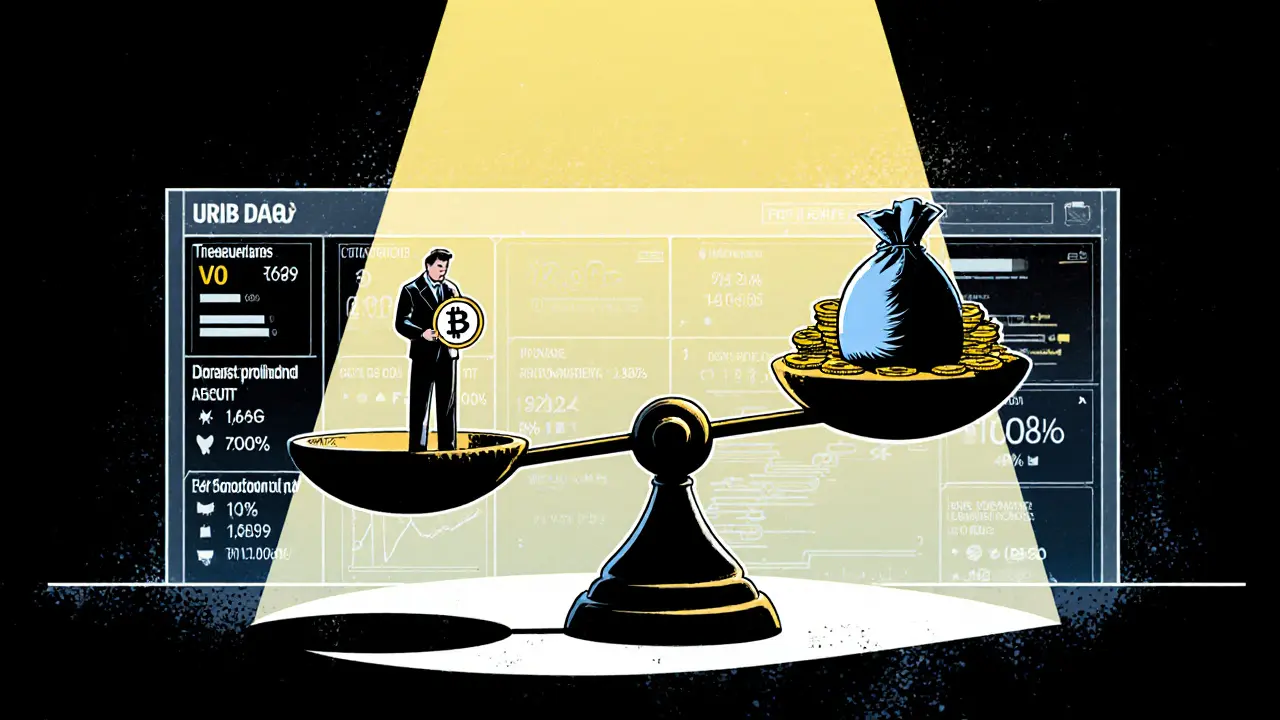
Transparency and Auditability
With traditional companies, you get quarterly reports and press releases. With governance tokens, you get the blockchain. Every proposal, every vote, every result is publicly visible. You can trace who voted, how much they voted with, and when the decision was executed. There’s no backroom deal. No hidden agenda. Everything is open-source and immutable.
This transparency builds trust. If a DAO wants to spend $5 million on marketing, you can see the proposal, debate it in forums, vote on it, and then watch the funds move on-chain. If something goes wrong, you can audit the entire history. No centralized entity can erase or manipulate that record.
Community Ownership Over Centralized Control
Before governance tokens, crypto projects were often controlled by a small team of founders or venture capitalists. Even if the code was open-source, the direction of the project was decided behind closed doors. Governance tokens flipped that model. Now, the community owns the protocol. The founders might still lead development, but they can’t unilaterally change the rules.
This shift matters. It prevents rug pulls. It reduces the risk of a single entity taking over. And it makes the protocol more resilient. If a team abandons a project, the community can still fund new developers and keep it alive. Look at MakerDAO: even after its founders stepped back, the community kept the protocol running, updated it, and expanded its use cases-all through token-based voting.

Challenges and Real-World Limitations
But it’s not perfect. The biggest issue? Voter turnout. Most DAOs see participation rates below 5%. Why? Voting can be confusing. You need a wallet, some ETH for gas fees, and the time to read through dense technical proposals. Many people just don’t bother.
That creates a problem: plutocracy. The people with the most tokens have the most power. A few large holders-sometimes whales or venture funds-can swing votes even if the majority disagrees. This undermines the ideal of true decentralization. Some protocols are trying to fix this. Compound introduced time-locked voting: if you want to vote, you have to hold your tokens for at least four days. That discourages short-term speculators from gaming the system.
Another challenge is complexity. Not everyone understands smart contracts or treasury management. A proposal to change the collateral ratio for a lending protocol might as well be written in Latin if you’re not familiar with DeFi mechanics. That’s why some DAOs now have working groups-volunteers who translate proposals into plain language and explain the trade-offs.
How to Get Started
If you want to start using governance tokens, here’s how:
- Buy the token on a major exchange like Coinbase, Kraken, or Uniswap.
- Transfer it to a non-custodial wallet like MetaMask or Coinbase Wallet.
- Visit the protocol’s governance portal (e.g., governance.uniswap.org or vote.aave.com).
- Connect your wallet and check for active proposals.
- Read the summary (many have community-written explainers), then vote.
You don’t need to be a coder. You don’t need to own millions of tokens. Even holding 100 UNI gives you a vote. And your vote counts. You might not sway a major decision alone, but if 1,000 others like you vote the same way, you change the outcome.
The Future of Governance Tokens
The next wave of governance is already here. Delegated voting lets you assign your vote to someone else-like a trusted community member or expert-without giving up your tokens. Reputation-based systems are being tested, where influence isn’t just based on token count, but on past participation, contribution, or community trust.
Some projects are even integrating governance tokens into real-world use cases. Imagine earning governance tokens for using a decentralized ride-share app, or holding them as loyalty points in a decentralized online store. The lines between ownership, usage, and reward are blurring.
Regulators are watching closely. In 2025, the U.S. SEC signaled that tokens marketed as investment opportunities with promises of profit may be classified as securities. That could force some projects to rethink how they structure and promote their governance tokens. But the core idea-community control-isn’t going away. It’s too powerful.
Governance tokens aren’t magic. They won’t fix bad code or prevent scams. But they do give ordinary people a real voice in the digital economy. And that’s something no centralized bank, tech giant, or government has ever offered before.
What exactly is a governance token?
A governance token is a cryptocurrency that gives its holder the right to vote on decisions affecting a decentralized protocol or DAO. These decisions can include changes to fees, treasury spending, smart contract upgrades, or new features. Unlike utility tokens that grant access to services, governance tokens are about control and influence.
Can I make money just by holding governance tokens?
Yes, but not guaranteed. Holding governance tokens can lead to price appreciation if the protocol grows. Many also offer staking rewards, fee shares, or liquidity mining bonuses. However, if no one votes or the project fails, the token’s value can drop. It’s not a passive investment-it’s an active participation.
Do I need a lot of tokens to have any influence?
Technically, no. Most protocols let anyone vote with even a single token. But in practice, large holders have more sway because proposals often need a high percentage of total votes to pass. Still, your vote adds to the collective voice. If thousands of small holders vote together, they can override whales.
What happens if I don’t vote?
Your vote doesn’t disappear, but your influence does. If you don’t vote, others do-and the outcome reflects their preferences. Low turnout is a major problem in DAOs. Many decisions pass with less than 5% participation, meaning a small group controls the direction. Voting is your way to protect your stake.
Are governance tokens safe?
The tokens themselves are as safe as the underlying blockchain. But governance carries risks. Malicious actors can propose harmful changes, and if enough people vote yes, it can happen. Always research proposals. Check community discussions. Don’t vote blindly. Also, gas fees and smart contract bugs are real risks. Use trusted wallets and never share your private keys.
Can governance tokens be regulated or banned?
Governance tokens aren’t illegal, but regulators are watching. The SEC in 2025 stated that tokens marketed as investment opportunities tied to central management may be classified as securities. This could limit how projects promote them or require them to comply with financial regulations. But the underlying technology-on-chain voting-isn’t something any government can shut down.
How do I know if a governance token is worth holding?
Look at three things: activity, transparency, and alignment. Is the community active? Are proposals regularly posted and debated? Is the treasury managed openly? Does the team still hold a large portion of tokens, or is control truly distributed? Avoid projects where a few wallets control over 50% of votes. Strong governance means power is spread out, not concentrated.
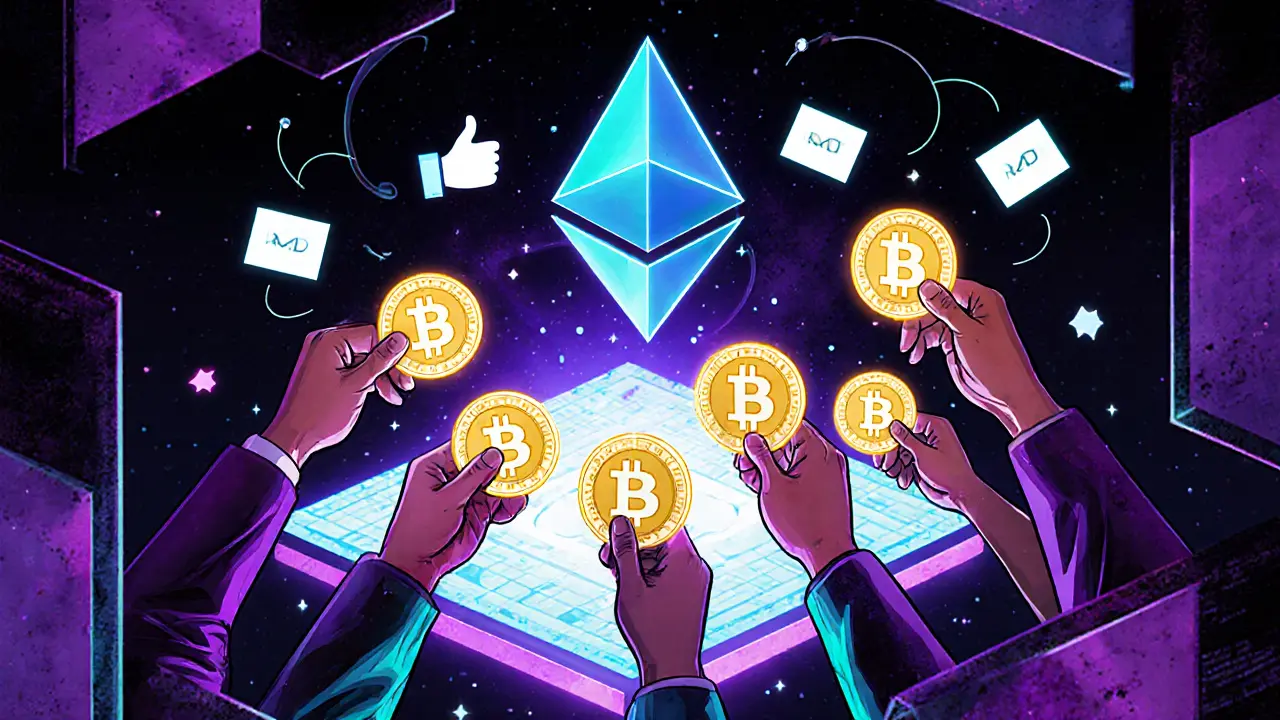
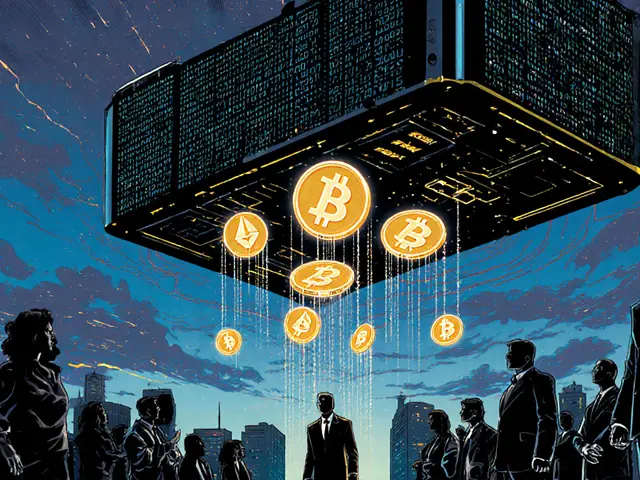
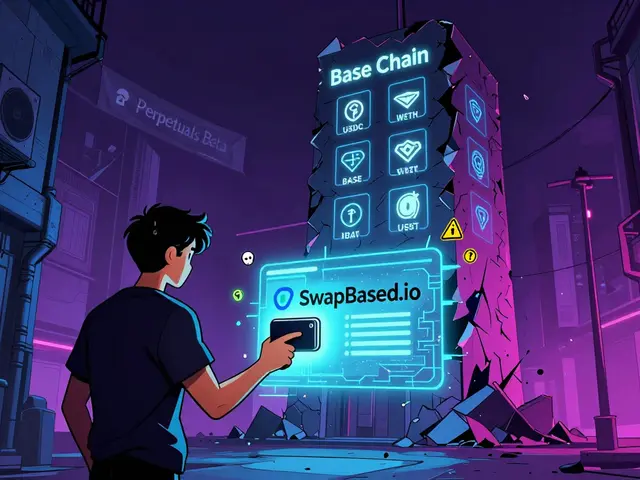
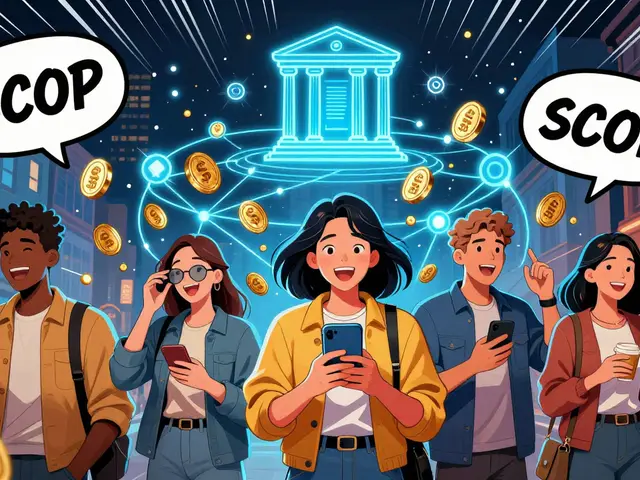
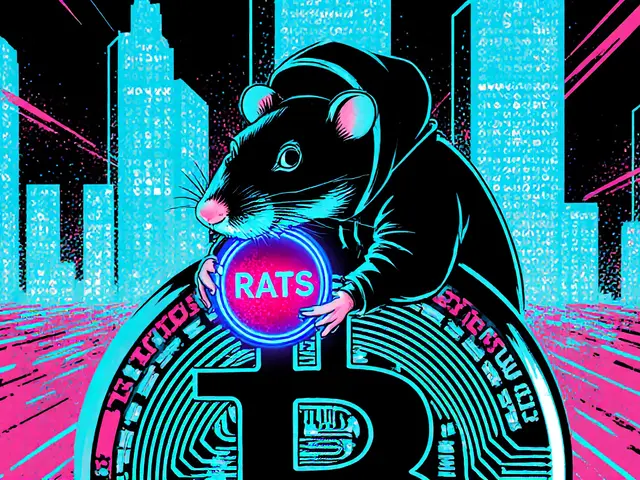

24 Comments
Chris G
November 19 2025Governance tokens are just voting rights wrapped in crypto. No magic. No revolution. Just code that lets whales vote harder. You think 100 UNI matters? Nah. The top 10 wallets control 70% of the votes. Period.
Phil Taylor
November 19 2025UK had real democracy centuries ago. This? A bunch of degens with MetaMask playing god. If you think a blockchain vote is governance, you’ve never seen how Parliament actually works. This is performative decentralization.
diljit singh
November 19 2025bro why even care? i hold aave and i just stake it. if it goes up cool. if it goes down i buy more. voting? too much work. i got tiktok to watch.
Abhishek Anand
November 21 2025The illusion of agency is the most insidious form of control. You believe you are participating, but you are merely a node in a distributed system designed to simulate autonomy. The real power resides in the infrastructure, not the ballot. Your vote is a ritual. The chain remembers everything. You remember nothing.
vinay kumar
November 23 2025most people dont even know what a proposal is they just see price go up and buy then cry when it drops
Lara Ross
November 24 2025This is the most transformative development in financial history. Ordinary people-teachers, nurses, students-are now co-owners of the protocols they use daily. This isn’t speculation. This is sovereignty. Your voice matters. Vote. Educate. Participate. The future is decentralized, and it’s waiting for you to show up.
Leisa Mason
November 25 2025Let’s be real. You think the average person reads a 50-page governance proposal? No. They click ‘yes’ because their buddy posted a meme. That’s not democracy. That’s mob rule with gas fees.
Rob Sutherland
November 25 2025There’s something poetic about owning a piece of the machine you use every day. Not as a customer. Not as a user. But as a co-creator. It’s not perfect. But it’s the first time in history that a digital system lets you actually shape what you rely on. That’s worth something.
Tim Lynch
November 27 2025Imagine if your local bank let you vote on interest rates. Or if Netflix let you decide which shows get made. This is that-but global. Open. Transparent. No CEOs hiding behind boardrooms. Just code. Just votes. Just us. And yeah, it’s messy. But it’s ours.
Melina Lane
November 28 2025I started with 50 UNI and just voted on one proposal. It felt weird at first. Like I was doing something real. Then I saw my vote counted. And it did. Not because I’m rich. Just because I showed up. You can too. No fancy degree needed. Just a wallet and 5 minutes.
andrew casey
November 28 2025The structural deficiencies of token-weighted governance are not incidental-they are systemic. The concentration of voting power among early investors and venture capital entities fundamentally undermines the egalitarian ethos purported by the movement. One must question whether such mechanisms constitute true decentralization or merely rebranded oligarchy.
Lani Manalansan
November 28 2025In my culture, collective decision-making is sacred. Seeing this happen on-chain, with people from Jakarta to Johannesburg voting on the same protocol? That’s beautiful. Not perfect. But real. We’re building something new, together. Even if it’s slow.
Frank Verhelst
November 28 2025bro if you’re not staking your governance tokens you’re leaving money on the table 🤡💸 vote AND stake. it’s free yield. why not? you got nothing to lose except FOMO.
Roshan Varghese
November 29 2025this is all a fed ploy. they let us think we own the system so we dont riot. one day theyll fork the chain and take it all. the blockchain is not safe. the gov controls the nodes. you think you’re free? you’re in a simulation.
Dexter Guarujá
December 1 2025America built the internet. We built crypto. Now some Indian dude with 200 MKR thinks he’s running a DAO? Wake up. Real governance needs structure. Not a Discord poll with 300 people who don’t know what a quorum is.
Jennifer Corley
December 2 2025I’ve read every proposal for the last 18 months. No one else has. The same 12 wallets vote on everything. The rest are just noise. This isn’t democracy. It’s a rigged game with open-source camouflage.
Natalie Reichstein
December 3 2025If you hold governance tokens and don’t vote, you’re complicit. You’re letting the whales decide your future. You think they care about your 100 tokens? They laugh at them. Your silence is their power.
Kaitlyn Boone
December 4 2025voting is hard and i dont trust any of the proposers they all have hidden agendas and the UI is garbage
Mike Stadelmayer
December 5 2025I don’t vote often. But when I do, I read. I check the forums. I wait a week. I don’t rush. It’s not about winning. It’s about making sure the system doesn’t break. Slow is safe. Quiet is powerful.
Devon Bishop
December 6 2025just a heads up-some proposals have typos in the code links. i found one last week that pointed to a dead contract. always double check the address on etherscan before voting. you dont want to approve a bad upgrade by accident.
sammy su
December 7 2025i used to think this was all hype. then i voted on a fee change that saved me $200 in gas over 3 months. small thing. big impact. you dont need to be a genius. just pay attention.
Khalil Nooh
December 8 2025Governance tokens are the first time in human history that economic participation has been decoupled from institutional hierarchy. This is not finance. This is civilization 2.0. The state cannot regulate what it cannot control. The protocol is the new constitution. Vote like your future depends on it-because it does.
jack leon
December 8 2025Imagine if your vote could earn you ETH. If your opinion could move markets. If your silence could cost you. This isn’t crypto. This is power. Raw. Unfiltered. Democratic. And it’s yours for the taking. Don’t sleep on it. The revolution doesn’t wait for the latecomers.
Chris G
December 10 2025Lara Ross says vote. But who votes on the voters? The same whales who funded the DAO. Your vote is a signal. Their vote is a weapon.